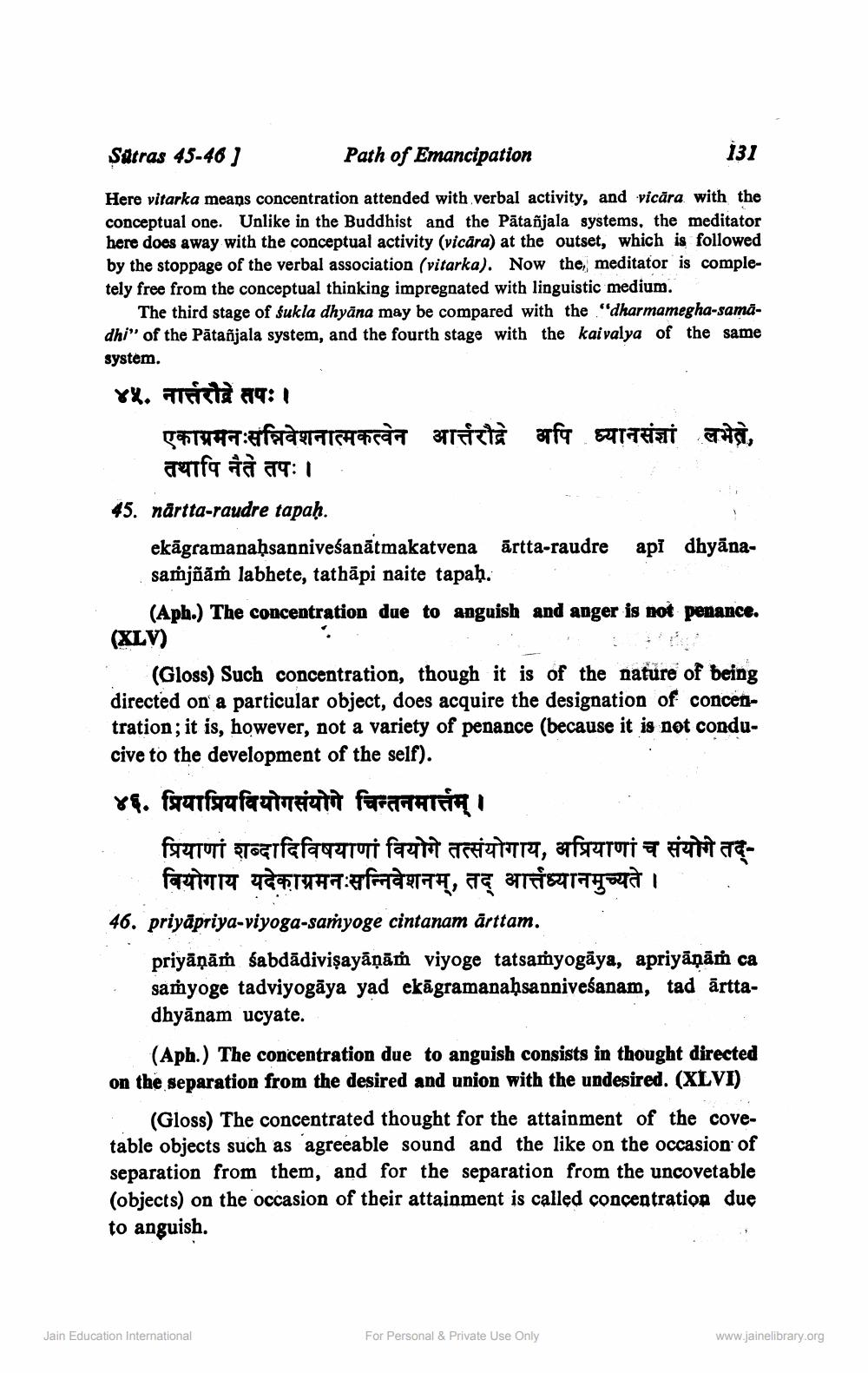________________
Sätras 45-46 ]
Path of Emancipation
131
Here vitarka means concentration attended with verbal activity, and vicāra with the conceptual one. Unlike in the Buddhist and the Pātañjala systems, the meditator here does away with the conceptual activity (vicara) at the outset, which is followed by the stoppage of the verbal association (vitarka). Now the, meditator is completely free from the conceptual thinking impregnated with linguistic medium.
The third stage of Sukla dhyāna may be compared with the "dharmamegha-samadhi" of the Pātañjala system, and the fourth stage with the kaivalya of the same system. 74. Atenta a: 1
एकानमनःसन्निवेशनात्मकत्वेन आर्तरौद्रे अपि ध्यानसंज्ञां लभेते,
तथापि नैते तपः। 45. nårtta-raudre tapaḥ.
ekāgramanaḥsanniveśanātmakatvena artta-raudre api dhyānasamjñām labhete, tathāpi naite tapaḥ.
(Aph.) The concentration due to anguish and anger is not penance. (XLV)
(Gloss) Such concentration, though it is of the nature of being directed on a particular object, does acquire the designation of cor tration; it is, however, not a variety of penance (because it is not conducive to the development of the self). ४६. प्रियाप्रियवियोगसंयोगे चिन्तनमार्तम् ।
प्रियाणां शब्दादिविषयाणां वियोगे तत्संयोगाय, अप्रियाणां च संयोगे तद्
वियोगाय यदेकानमनःसन्निवेशनम्, तद् आर्तध्यानमुच्यते । 46. priyapriya-viyoga-samyoge cintanam arttam.
priyāņām śabdādivișayāņāṁ viyoge tatsamyogāya, apriyāņāṁ ca samyoge tadviyogāya yad ekāgramanahsanniveśanam, tad ārttadhyānam ucyate.
(Aph.) The concentration due to anguish consists in thought directed on the separation from the desired and union with the undesired. (XLVI)
(Gloss) The concentrated thought for the attainment of the covetable objects such as agreeable sound and the like on the occasion of separation from them, and for the separation from the uncovetable (objects) on the occasion of their attainment is called concentration due to anguish.
Jain Education International
For Personal & Private Use Only
www.jainelibrary.org




